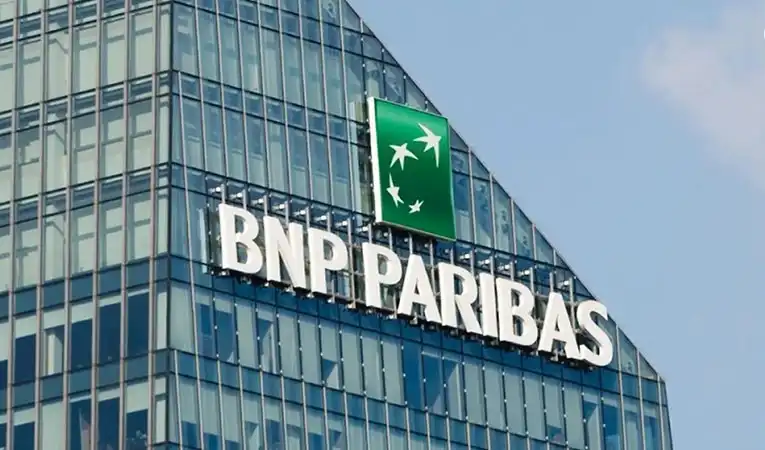The UK real estate market has seen a surge in demand over the years, attracting both local and international investors. However, the impact of Brexit on foreign investment has been a topic of concern for many. In this blog post, we will delve into the emerging trends in the UK property market and discuss the tax considerations that foreign investors need to be aware of. We will also explore the opportunities available in the rental property market and highlight the risks and challenges associated with foreign investment. Lastly, we will take a look at the future outlook and predictions for the UK real estate market.
Increasing Demand for UK Real Estate
There has been a significant increase in the demand for UK real estate in recent years. This surge can be attributed to several factors, including the stable economy, attractive investment opportunities, and the perception of the UK as a safe haven for property investments. Foreign investors, in particular, have been keen to invest in the UK property market due to its potential for high returns and long-term growth.
One of the key drivers of the increasing demand for UK real estate is the strong economy. The UK has a resilient economy that has withstood various global challenges, including the recent financial crisis and Brexit uncertainty. This stability has attracted foreign investors who see the UK as a safe bet for their property investments.
In addition to the stable economy, the UK offers attractive investment opportunities in its property market. The country has a well-developed and highly regulated property market, making it an appealing destination for both domestic and foreign investors. The UK also has a strong rental market, with high demand for quality rental properties. This has further enhanced the investment potential of UK real estate.
- High returns
- Stable rental income
- Potential for capital appreciation
| Benefits of Investing in UK Real Estate | ||
|---|---|---|
| High returns | Stable rental income | Potential for capital appreciation |
Despite the increasing demand and attractive investment opportunities, there are still challenges and risks associated with foreign investment in UK real estate. One of the major concerns is the impact of Brexit on the property market. The uncertainty surrounding Brexit has created volatility and caution among investors. However, it is important to note that the long-term fundamentals of the UK property market remain strong, and any short-term fluctuations are expected to stabilize over time.
In conclusion, the increasing demand for UK real estate can be attributed to various factors such as the stable economy, attractive investment opportunities, and the perception of the UK as a safe haven for property investments. Despite the challenges and risks associated with foreign investment, the long-term outlook for UK real estate remains positive. With its strong rental market and potential for high returns, the UK continues to attract both domestic and foreign investors looking to capitalize on the opportunities available in the property market.
Impact of Brexit on Foreign Investment
The impact of Brexit on foreign investment in the UK property market has been a major concern for both investors and industry professionals. With the UK’s decision to leave the European Union, there has been a sense of uncertainty surrounding the future of the property market and its attractiveness to foreign investors.
One of the key factors contributing to the uncertainty is the potential loss of access to the EU single market. This could have a significant impact on foreign investment in the UK, as it may lead to increased barriers and costs for foreign investors. Additionally, the uncertainty surrounding the future trade agreements between the UK and EU has also made investors cautious about investing in the country.
Despite the uncertainties, there are still some areas of opportunity for foreign investors in the UK property market. The depreciation of the pound following the Brexit vote has made UK property more affordable for foreign investors, particularly those from countries with strong currencies. This has led to increased interest and investment from foreign buyers, who see this as an opportunity to enter the market at a more favorable exchange rate.
In addition to the currency advantage, there are also certain sectors within the UK property market that have remained resilient despite the Brexit uncertainties. For instance, the student accommodation and build-to-rent sectors have continued to attract foreign investors due to the stable rental income and growing demand in these areas. These sectors, which are less reliant on the broader economy, have demonstrated their resilience and are seen as a safe haven for foreign investors.
- Increased barriers and costs for foreign investors
- Uncertainty surrounding trade agreements
- Depreciation of the pound makes UK property more affordable
- Opportunities in resilient sectors such as student accommodation and build-to-rent
| Impact | Opportunity | Risks |
|---|---|---|
| Increased barriers and costs for foreign investors | Depreciation of the pound makes UK property more affordable | Uncertainty surrounding trade agreements |
| Uncertainty surrounding trade agreements | Opportunities in resilient sectors such as student accommodation and build-to-rent |
Emerging Trends in UK Property Market
The UK property market is constantly evolving and adapting to changing economic conditions, consumer demands, and government regulations. It is important for both investors and homeowners to stay informed about the latest emerging trends in order to make informed decisions in their real estate endeavors. In this blog post, we will explore some of the key trends that are currently shaping the UK property market.
1. Shift towards sustainable and eco-friendly properties:
With the growing awareness of climate change and the need for more sustainable living, there is a significant shift towards sustainable and eco-friendly properties in the UK property market. Homebuyers and tenants are increasingly seeking energy-efficient homes with features such as solar panels, rainwater harvesting systems, and smart home technology. Developers and investors are recognizing this trend and are incorporating green building practices into their projects to attract environmentally conscious buyers and tenants.
2. Rise of co-living spaces:
The concept of co-living has gained popularity in recent years, especially in urban areas with high housing costs. Co-living spaces provide affordable and flexible accommodation options for young professionals and students who are looking for a sense of community and shared living experiences. These spaces often offer communal facilities such as kitchens, workspaces, and social areas, fostering a collaborative and social living environment. Developers and investors are capitalizing on this trend by creating purpose-built co-living properties to cater to the growing demand.
3. Digital disruption in the property industry:
The advent of technology has had a significant impact on the property industry. Online platforms and apps have made it easier for buyers, sellers, and tenants to search for properties, schedule viewings, and complete transactions. Virtual reality and augmented reality technology have also revolutionized the way properties are marketed and showcased, providing immersive virtual tours and 3D visualizations. Additionally, blockchain technology has the potential to streamline property transactions and ensure transparency and security. As technology continues to advance, it is expected to disrupt traditional processes and reshape the UK property market.
Conclusion:
These are just a few of the emerging trends in the UK property market. It is important for investors, developers, and homeowners to stay vigilant and adapt to these evolving trends in order to capitalize on new opportunities and mitigate risks. Whether it is investing in sustainable properties, exploring co-living ventures, or embracing digital innovations, being aware of these trends will help navigate the dynamic landscape of the UK property market.
Tax Considerations for Foreign Investors
Foreign investors are increasingly attracted to the UK real estate market due to its stability and potential for high returns. However, before diving into these opportunities, it is important for foreign investors to understand the tax considerations that come with investing in UK property. Tax laws and regulations can significantly impact the profitability and feasibility of an investment, making it crucial to thoroughly research and plan beforehand. In this blog post, we will explore the key tax considerations that foreign investors should take into account when investing in UK real estate.
1. Stamp Duty Land Tax (SDLT): One of the primary taxes that foreign investors need to be aware of is the Stamp Duty Land Tax. SDLT is a tax imposed on property transactions in the UK and is calculated based on the purchase price or market value of the property, whichever is higher. Foreign investors may be subject to higher rates of SDLT compared to UK residents, as an additional 2% surcharge has been introduced for non-UK residents purchasing residential property.
2. Capital Gains Tax (CGT): When a foreign investor sells a UK property, they may be subject to Capital Gains Tax on any profits made. CGT is applied to the gain in value between the purchase and sale price of the property. Non-UK residents are generally only liable to pay CGT on gains made from the sale of UK residential property. However, it is important to note that the rate of CGT and exemptions may vary depending on the individual’s country of residence and any applicable double tax treaties.
3. Income Tax: Foreign investors who generate rental income from UK property will also need to consider their income tax obligations. In general, rental income is subject to UK income tax, regardless of the investor’s residency status. However, non-UK residents are usually only taxed on the net rental income after allowable deductions, such as mortgage interest and property expenses. It is advisable for foreign investors to seek professional tax advice to ensure compliance with UK tax regulations and to determine any potential tax relief or exemptions.
In addition to the above taxes, foreign investors should also be aware of other tax considerations such as Value Added Tax (VAT), Inheritance Tax (IHT), and Non-Resident Landlord Scheme. VAT may be applicable on certain types of property transactions, while IHT can impact the transfer of UK property upon the investor’s demise. The Non-Resident Landlord Scheme involves the withholding of tax on rental income by letting agents or tenants. Being aware of these tax considerations and seeking expert guidance can help foreign investors navigate the complexities of the UK tax system and optimize their investment returns.
Summary
In summary, tax considerations play a significant role in the decision-making process for foreign investors looking to invest in UK real estate. Understanding and planning for taxes such as Stamp Duty Land Tax, Capital Gains Tax, and Income Tax is crucial to avoid any unexpected liabilities and to maximize the profitability of the investment. Seeking professional tax advice and staying updated on the latest tax laws and regulations is highly recommended. By carefully considering these tax considerations, foreign investors can make well-informed investment decisions in the UK property market.
Opportunities in Rental Property Market
When it comes to investing in the real estate market, there are various options available. One of the lucrative avenues is the rental property market. This sector provides ample opportunities for investors to earn regular income and build wealth over time. Here, we will explore the opportunities that exist in the rental property market and how individuals can leverage them.
1. High Demand: The demand for rental properties is constantly on the rise. With the increasing population and changing lifestyle trends, more and more people are opting to rent rather than buy homes. This presents a great opportunity for investors to capitalize on the growing demand and generate rental income.
2. Regular Cash Flow: Investing in rental properties can provide a steady stream of cash flow. By charging monthly rent to tenants, investors can receive regular income that can be used to cover expenses, repay mortgages, or reinvest in the property or other investment opportunities.
3. Appreciation in Value: Rental properties can appreciate in value over time, especially in desirable locations with high demand. This means that not only will you earn regular rental income, but you may also benefit from the increased value of the property when you decide to sell it in the future.
Risks and Challenges in Foreign Investment
Foreign investment in any country comes with its own set of risks and challenges. It is important for investors to thoroughly research and understand these risks before making any investment decisions. By doing so, they can minimize potential pitfalls and maximize their chances of success.
One of the main risks that foreign investors face is the political and regulatory environment of the host country. Political instability, changes in government policies, and legal uncertainties can have a significant impact on investment returns. It is crucial for investors to carefully analyze the political climate and regulatory framework of the country they are considering investing in.
The economic risks associated with foreign investment should also be taken into account. Fluctuations in currency exchange rates, inflation, and interest rates can affect the profitability of investments. Investors need to carefully assess the economic conditions of the host country and the implications they may have on their investments.
Another challenge for foreign investors is cultural and language barriers. Investing in a foreign country requires understanding the local customs, traditions, and business practices. Building relationships with local partners can help overcome these barriers and navigate the cultural nuances that may impact investment decisions.
Future Outlook and Predictions for UK Real Estate
The UK real estate market has always been an attractive investment option, both for domestic and foreign investors. With its stable economy, strong legal framework, and high demand for property, the UK has become a sought-after destination for those looking to invest in real estate. However, like any other market, the UK real estate sector is not immune to fluctuations and uncertainties. In this blog post, we will explore the future outlook and predictions for the UK real estate market, taking into account various factors that may impact its growth and stability.
Market Demand and Housing Shortage
One of the key factors influencing the future of the UK real estate market is the increasing demand for housing. The population in the UK is expected to grow steadily over the coming years, leading to an increased need for housing. According to experts, this demand is likely to outstrip the current supply of properties, resulting in a housing shortage. This shortage is expected to drive up property prices in some regions, making real estate investment a lucrative option for individuals and businesses.
Effects of Brexit
The impact of Brexit on the UK real estate market is a topic of much speculation and debate. While the full consequences of the UK’s departure from the European Union are yet to be determined, there are potential implications for the real estate sector. Some experts predict that Brexit may lead to a slowdown in foreign investment, as uncertainties surrounding trade agreements and immigration policies may deter international buyers. However, others argue that the weak pound and favorable exchange rates may attract foreign investors seeking to take advantage of discounted property prices.
Infrastructure Development and Opportunities
The development of infrastructure projects can significantly influence the future outlook of the UK real estate market. Major government initiatives, such as the construction of new transport links and the expansion of existing ones, can open up opportunities for property investment. Areas with improved transport connections and access to amenities are likely to see an increase in demand, leading to potential growth in property values. Investors should pay attention to planned infrastructure developments and consider their potential impact on property prices and rental income.
Risks and Challenges
While the UK real estate market presents numerous opportunities, it also comes with its fair share of risks and challenges. Economic fluctuations, changes in government policies, and shifts in market sentiment can all impact property values. Investors should carefully assess these risks and consider diversifying their portfolios to mitigate potential losses. Additionally, keeping up with regulatory requirements and understanding local market trends is essential to make informed investment decisions.
Conclusion
The future outlook and predictions for the UK real estate market are subject to various factors, including market demand, the impact of Brexit, infrastructure development, and risks and challenges. While uncertainties exist, the UK real estate market continues to offer opportunities for growth and investment. By staying informed about market trends, conducting thorough research, and seeking professional advice, investors can navigate the market successfully and make educated decisions to capitalize on the potential of the UK real estate sector.
Frequently Asked Questions
1. What is the impact of Brexit on foreign investment in UK real estate?
Brexit has created uncertainty in the UK real estate market, causing some foreign investors to hesitate. However, the depreciation of the British pound has made investments more attractive for certain investors, effectively offsetting some of the perceived risks.
2. What are the emerging trends in the UK property market?
Some of the emerging trends in the UK property market include increased demand for properties in suburban areas and regional cities, as well as a growing interest in sustainable and environmentally-friendly properties. Additionally, there has been a rise in co-living spaces and a shift towards flexible working arrangements, which has influenced the demand for certain types of properties.
3. What tax considerations should foreign investors be aware of when investing in UK real estate?
Foreign investors should be aware of various tax considerations such as stamp duty land tax, capital gains tax, and non-resident landlord tax. It is advisable to seek professional advice to ensure compliance with the tax regulations and optimize tax planning strategies.
4. What are the opportunities in the rental property market in the UK?
The rental property market in the UK offers opportunities for both local and foreign investors. The demand for rental properties remains consistent, particularly in urban areas, as many individuals prefer to rent rather than purchase a home. Investors can benefit from rental income and potential property value appreciation in the long term.
5. What are the risks and challenges foreign investors may face when investing in UK real estate?
Foreign investors may face risks such as currency fluctuations, changes in immigration policies, and political uncertainty. They may also encounter challenges in understanding local property laws, regulations, and cultural nuances. Engaging with local experts and conducting thorough due diligence can help mitigate these risks and overcome challenges.
6. What is the future outlook for the UK real estate market?
Though the future is uncertain due to various factors such as Brexit and economic conditions, the UK real estate market is expected to continue attracting investment. The demand for housing, rental properties, and commercial spaces is likely to persist, particularly in well-connected areas. However, it is important to closely monitor market conditions and adapt strategies accordingly.
7. Are there any predictions for the future of UK real estate?
While predictions can be challenging, some experts anticipate a recovery and potential growth in the UK real estate market post-Brexit. The market could witness increased interest from foreign investors, especially if there is economic stability and favorable trade agreements. However, it is essential to consider multiple perspectives and consult professionals for more accurate predictions.
EDITOR
Categories
Recent Articles

NotteGlobal’s May 2024 Real Estate Report: A Comprehensive Analysis of Turkey’s Market Trends
June 22, 2024

New Immigration Policy in the US: A Major Step for Family Unity
June 21, 2024

Second Largest Investor Group in Greece: Turks
June 14, 2024

Exploring the Hidden Gems of Athens Riviera: A Guide to Luxurious Neighborhoods
June 3, 2024

Economic Stability and Growth in Turkey
May 31, 2024

Turkey’s Housing Sales Statistics for April 2024: A Comprehensive Analysis
May 24, 2024

BNP Paribas Forecasts End-of-Year USD/TRY Rate
May 3, 2024

Significant Updates to the Greece Golden Visa Program in 2024
April 29, 2024

€800,000: New Threshold for Greece’s Golden Visa
February 10, 2024

Golden Visa for Spain
December 27, 2023


